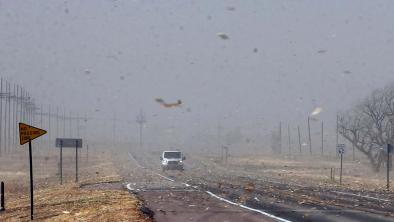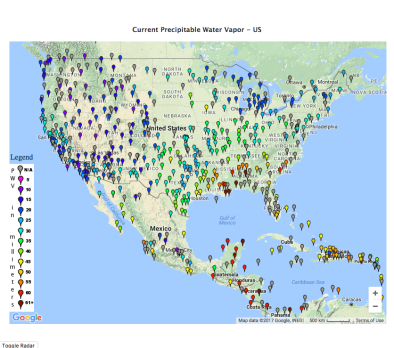Science Source
Midlatitude Moisture Contribution to Recent Arctic Tropospheric Summertime Variability
- States that in recent decades, the midtroposphere (defined here as 600-400 hPa) has been warming faster in the Arctic than in the Northern Hemisphere midlatitudes; this warming has been accompanied by an increase in Arctic precipitable water
- Focuses on the dynamical drivers of Arctic midtropospheric heat anomalies in observations to better understand the nature of heat transport in Arctic midtropospheric warming and polar amplification
- States that warming typically reduces the sensible heat transport and increases the latent heat transport into the Arctic
- Shows that increased heat transport into the Arctic is driven to an important extent by increased precipitable water in the midlatitude planetary boundary layer
- Analyzes the dynamics of late summer Arctic tropospheric heat content variability using reanalyses
- Finds in both trends and interannual variability, much of the August heat content variability in the Arctic midtroposphere can be explained by the total—sensible plus latent—heat content variability at the midlatitude near surface in July
- Argues that heat content signals are propagated from the midlatitude near surface to the Arctic midtroposphere approximately along climatological moist isentropes
- High-frequency data reveal that the propagating signal is primarily driven by a few strong meridional heat flux events each summer season
- Composite analysis on these events shows that August meridional heat fluxes into the Arctic midtroposphere are succeeded by positive heat content anomalies in the lower troposphere a few days later
- States this second connection between the Arctic midtroposphere and the Arctic lower troposphere could be sufficient to explain some of the recent Arctic 850-hPa temperature variability north of 75°N
Related Content
Headline

Dec 17, 2021 | Climate Nexus Hot News
'Obviously Extraordinary, Unprecedented' Storm Rips Across Central US
Science Source
| Nature
Global Temperatures Over Last 24,000 Years Show Today's Warming 'Unprecedented'
Matthew Osman, Jessica Tierney, Jonathan King et al
Science Source
| AMS Journal of Climate
Rising Variability in Thunderstorm-Related U.S. Losses as a Reflection of Changes in Large-Scale Thunderstorm Forcing
J. Sander, J. F. Eichner, E. Faust et al
Real Time Data

Jun 21, 2017 | UCAR
Current Precipitable Water Vapor - US


